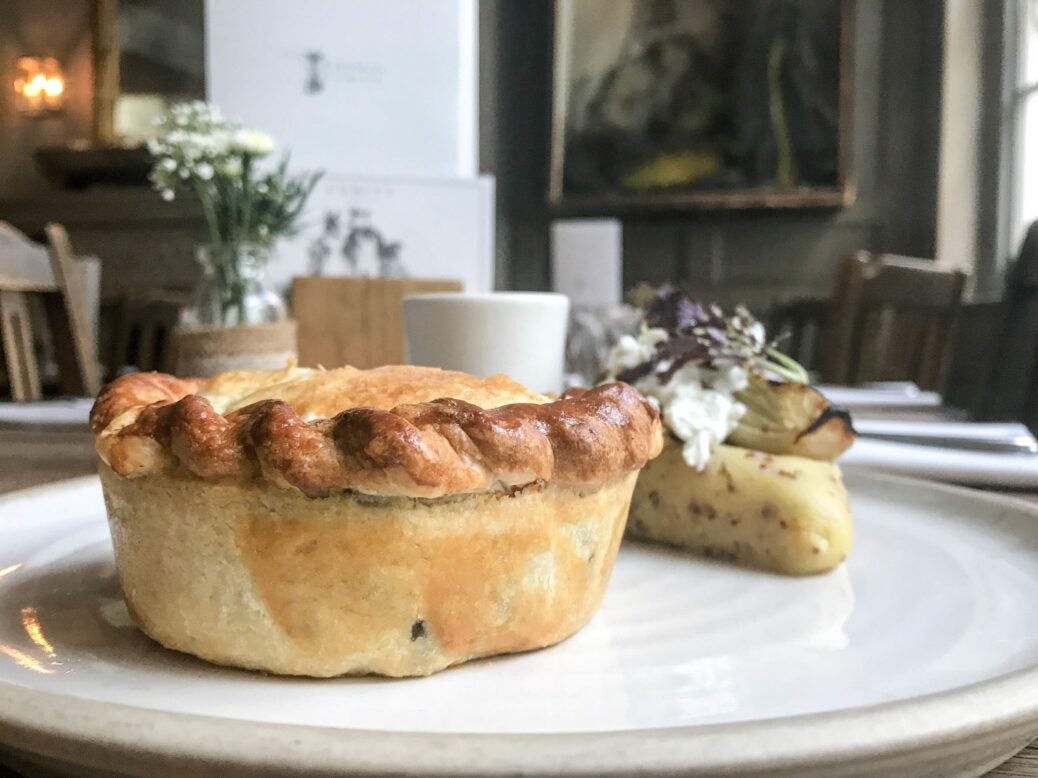
Once you get past the minor strangeness of its recent renovations, the Lord Alfred Tennyson impresses where it matters: with the food, writes Christopher Jackson
It is among the more prosaic invitations that can come one’s way: the request to celebrate a refurbishment. In such instances, one is being asked not only to praise the restaurant itself, but to give it the serious critical attention of evolution usually afforded to epochs or major artists. Such affairs also tend to place considerable emphasis – and perhaps uncomfortable strain – on the profession of the interior designer.
The Lord Alfred Tennyson sits in Motcomb Street, a blessed spot not far from Knightsbridge. Sloane Street is an arrow of boutiquey certainty to its west; Wilton Crescent imperiously dreams of Bath to its east. The pub is owned by Cubitt House whose collection also includes the Orange in Pimlico, and the Grazing Goat in New Quebec Street. Tennyson once lived hereabouts – wizard-bearded even in youth, scratching out his early verse. Hence the name.
Walk in, and to your right a walnut-wooded bar curves away from you, dominating the room: it renders the drinking-space a little cramped. This is also one of those London pubs that feels predominantly an exercise in verticality. After a steep climb during which I regretted not having brought along a grappling-hook, I arrived at the next floor gasping like an unrepentant smoker.
Here, themed with grey, is the touted new look of the fine dining area. We were placed by a window – the sort of airy transparency which manages to be cold even on summer evenings – on somewhat uncomfortable chairs. We were informed that one batch of the new kind hadn’t yet arrived. The space – once venerable-looking, where one might have contentedly tinkered with the metre of ‘The Charge of the Light Brigade’– is now the colour of chill Brunelleschian stone.
And it feels somehow ill-proportioned, perhaps because this floor must also accommodate the continued claims of the staircase: as near to a ladder as stairs can get, this stretches like a gauntlet laid down to a mountaineer, remorselessly upwards towards a rentable private area. London is always getting itself into uncomfortable contortions.
When I decided to concentrate on the food, my evening began to improve at the same gradient as the staircase. All the fare at the Tennyson is sourced from British producers: a map on the menu can assist if you wish to pinpoint the geography of the meal you’re about to have.
For instance, my trout – which arrived aghast on the plate among beetroot, apple and hay mayonnaise – had once had its home in the Chalk Bay reserve. And my main course was a chicken which had once considered Castlemead its home: this came with salt-baked celeriac, violet artichokes (these were the colour of the sort of thing a dowager might wear to the opera), and almond jus. Perhaps if Tennyson were still alive he’d feel compelled to write an ode to this: poets, to paraphrase Chesterton, have been mysteriously silent on the subject of celeriac.

All this was washed down many times. First came a dancing glass of Billecart-Salmon Brut Reserve; then, we had that finest of Tuscan wines – a Brunello di Montalcino San Polino. This was the 2011: a year when things had evidently been ticking along nicely in the environs of Montalcino.
And in truth there were other wines whose labels gradually began to blur, as if they, and not we, were confused by their own identity. In and between this, my companion and I occasionally drifted back to the décor, wondering how grandeur had been swapped for incoherence for the sake of a stab at clarity.
Eventually we forgot that the profession of interior designer was up for adjudication. We decided that the great calamity of the chairs was not after all such a calamity. In time, steeped in a dessert wine that was an accidental punch to our Jude’s ice cream, we began to praise the place unequivocally.
When the last trump sounds, the cooks shall go on ahead of the interior designers – and I, for one, wouldn’t mind if they go on ahead of the writers too. As we left, we turned back towards that strange Georgian edifice, and knew that there lurked somewhere inside, like a jewel in furze, a very fine chef indeed.
Christopher Jackson is Head of the Spear’s Research Unit







